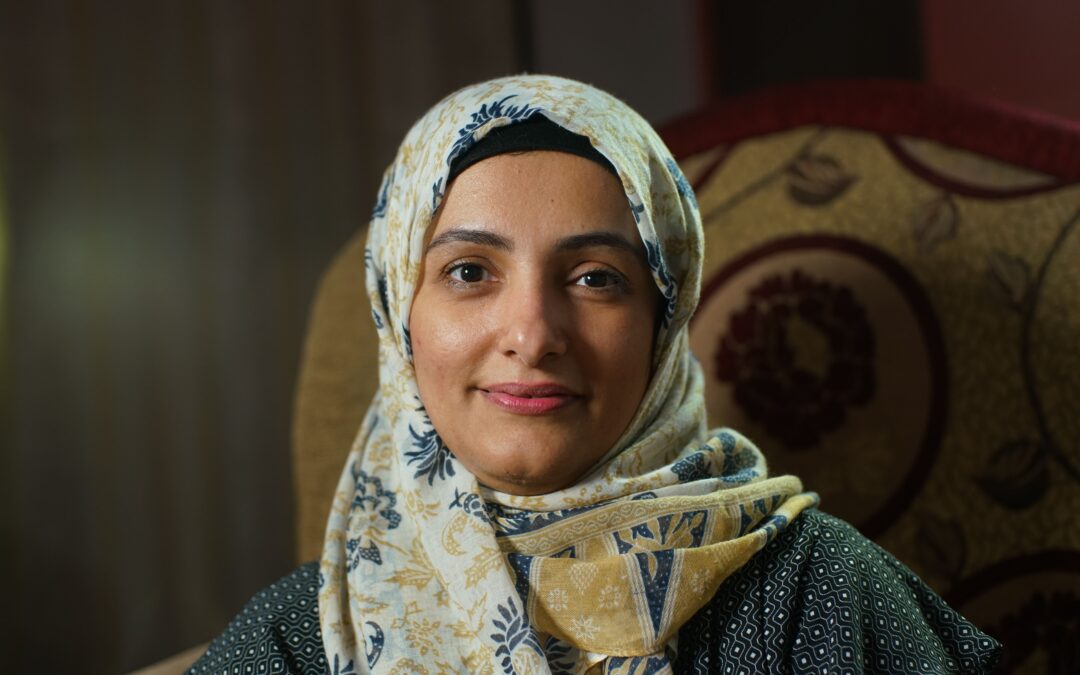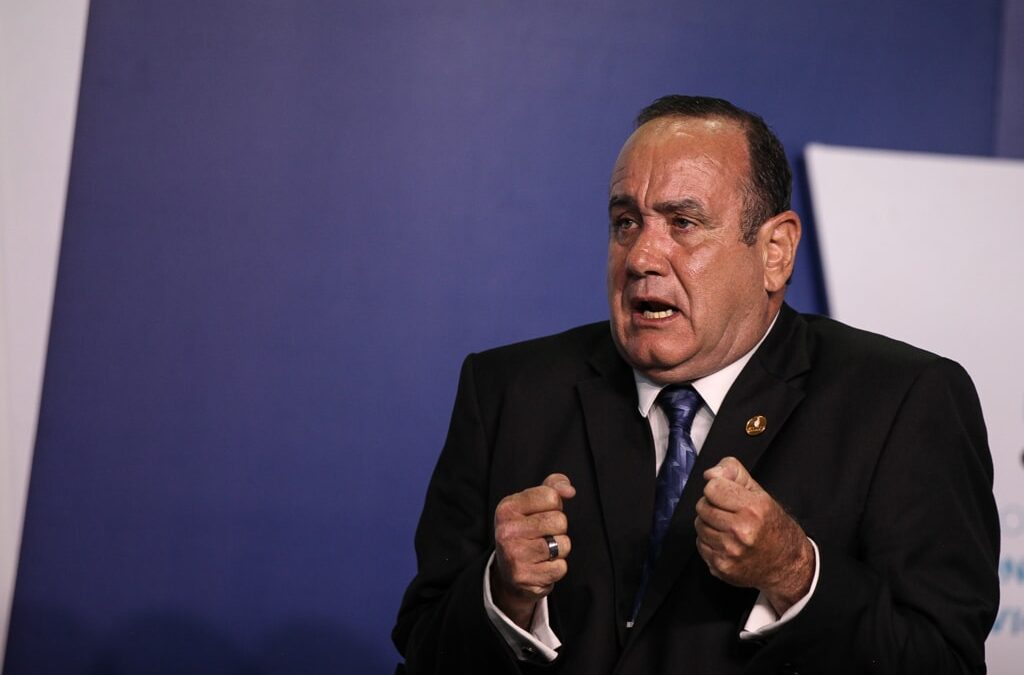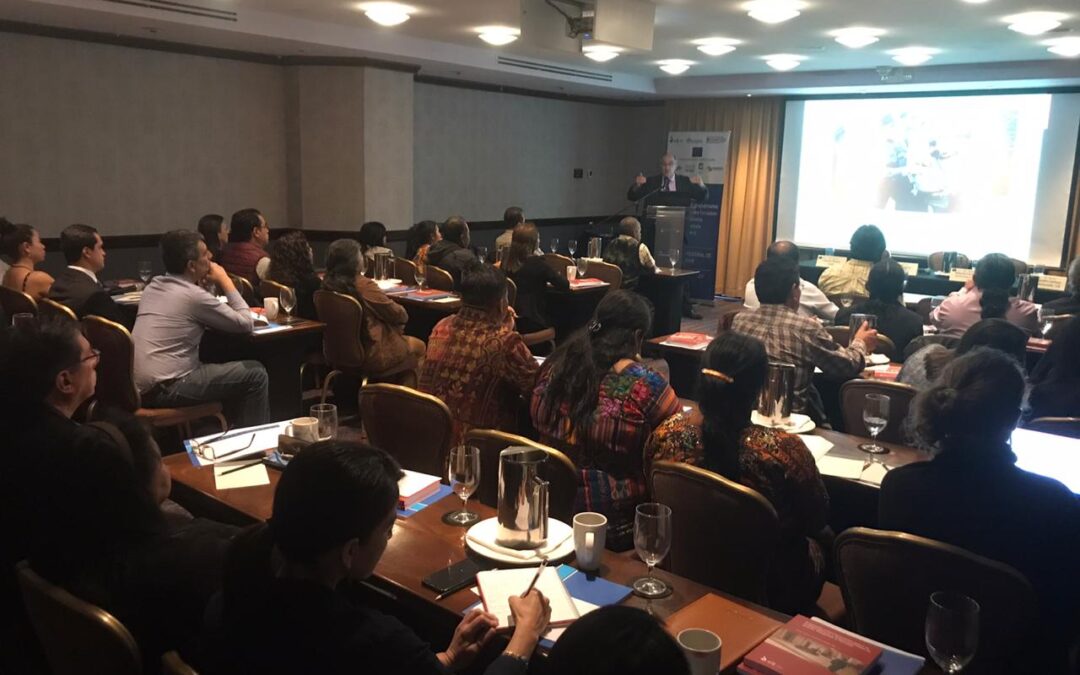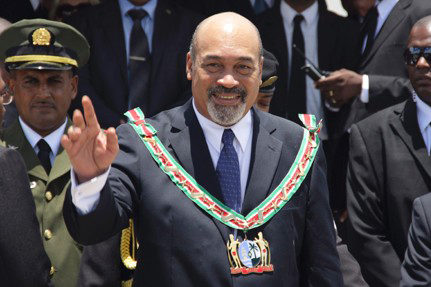
Feb 19, 2020 | News
Huda Al- Sarari, Yemeni lawyer and human rights defender, is the 2020 Martin Ennals Award laureate. She was among three women selected as finalists by a jury of ten of the world’s leading human rights organizations, including the ICJ, along with Sizani Ngubane, South Africa, and Norma Librada Ledezma, Mexico.
The 2020 Martin Ennals Award ceremony, co-hosted by the Martin Ennals Foundation and the City of Geneva, was held today, and for the first time in the history of the Award, all three finalists are women.
“Women human rights defenders are subject to the same risks as every human rights defender, but as women, they also face certain forms of violence and violations due to their gender. They are often stigmatized and ostracized by community leaders, faith- based groups and even family members,” said the Mayor of the City of Geneva, Sandrine Salerno.
“The Martin Ennals Foundation is particularly proud to honour and support three resilient women human rights defenders this year, our laureate Huda Al-Sarari, as well as our two finalists Sizani Ngubane and Norma Librada Ledezma for their achievements. We hope that the award will shed a light on their achievements, and strengthen protection mechanisms around them,” said Philippe Currat, President of the Board of the Martin Ennals Foundation.
Huda Al-Sarari is a Yemeni lawyer and human rights defender who graduated in Sharia and Law from Aden University. She also holds a masters in Women’s Studies and Development from the Women’s Centre at Aden University. Over the last years, Huda investigated, exposed and challenged the enforced disappearances that occurred as a result of secret prisons run by foreign governments in Yemen where thousands of men and boys have suffered from arbitrary detention, torture and extrajudicial killings. She collected evidence on more than 250 cases of the abuse taking place within those prisons.
“Being a human rights defender in Yemen is extremely challenging, and being a woman makes this even more difficult. In a male-dominated society, I have to prove myself maybe ten times more than a man,” she said.
Despite the threats, defamation campaigns and sacrifices she and her family endured, Huda continues to stand alongside the families of those who have disappeared.
“Receiving the 2020 Martin Ennals Award for human rights defenders means the world to me. It gives me great strength and emboldens me to continue this fight for justice. I believe the Award will be incredibly important in drawing attention to the continual plight of victims of arbitrary detention, abuse and torture in Yemen,” she added.
“We commend Huda for the work that she conducted, not only against the backdrop of the ongoing Yemeni civil war, but also, in a country where women still struggle to express their political and civil rights. Huda’s legacy is crucial as her thorough investigations and search for accountability will serve to bring justice for human rights violations occurred during the conflict,” said Hans Thoolen, Chair of the Martin Ennals Award Jury.
The two finalists of the Martin Ennals Award this year are Sizani Ngubane (South Africa) and Norma Librada Ledezma (Mexico).
Sizani is a human rights defender who advocates for land rights for women in rural areas on South Africa. She also supports women to access education, and fights for the end of the traditional practice of Ukuthwala, which is the abduction and forced marriage of young girls and women.
Norma is the founder of Justicia para Nuestras Hijas. She has supported over 200 investigations into cases of feminicide, enforced disappearance and human trafficking in Chihuahua, Mexico.
Both were praised by the Martin Ennals Jury member organizations for their commitment and tremendous achievements in their respective countries.
Additional information
The City of Geneva has hosted the Award ceremony since 2008, together with the Martin Ennals Foundation, as part of its deep commitment to the defense of human rights. The support of the City, by means of its Service for International Solidarity, reflects its mission to promote human rights both internationally and
The Jury of the Martin Ennals Award is comprised of ten of the world’s leading human rights organizations: the ICJ, Amnesty International, FIDH, Human Rights First, HURIDOCS, International Service For Human Rights, Brot für die Welt (Bread for the World), Front Line Defenders, Human Rights Watch and the World Organization Against Torture.
Download
Universal-MEA2020bios-News-2019-ENG (full bios of finalists, in PDF)
Universal-MEA2020winner-News-Press releases-2019-ARA (full story in Arabic, PDF)
Universal-MEA2020bios-News-2019-ARA (full bios of finalists, in Arabic, PDF)
Contact
Olivier van Bogaert, Director Media & Communications, ICJ representative in the MEA Jury, t: +41 22 979 38 08 ; e: olivier.vanbogaert(a)icj.org
Watch the ceremony as it happened
https://www.facebook.com/MartinEnnals/videos/2552501445008021/

Feb 17, 2020 | Feature articles, News
A tribute to former ICJ Commissioner José Zalaquett by current ICJ Commisioner Alejandro Salinas Rivera (Chile).
After a prolonged and agonizing illness, our beloved José (Pepe) Zalaquett has passed away. Pepe, as his friends used to call him and as he was widely known, was a leading lawyer and professor of international human rights law.
However, he was much more than that. At heart, he was a gentle man, a curious and pleasant human being, very sensitive to the expressions of art.
As a lawyer and later as a law professor, he was characterized by his deep commitment to justice and respect for human rights.
This commitment also brought adverse consequences in his life, as he suffered persecution, jail and exile, during the Chilean dictatorship.
While in exile and away from his homeland, he joined Amnesty International, and soon after became the president of its board of directors.
Upon returning to Chile after 10 years of exile, he headed the Chilean section of Amnesty International, in what were strenuous times for the country.
Once democracy was re-established in Chile, he became part of the National Truth and Reconciliation Commission, known as the “Rettig” Commission. However, it should have been called the “Zalaquett” Commission instead, since he was the architect of the initiative which was later emulated in South Africa, El Salvador and other countries, which initiated similar processes.
Pepe, because of his strict commitment to justice and his veritable concern for the protection and promotion of human rights, was not confined in dogmas or prejudices; he was so generous, open and free minded that he would not settle for anything less than the best. This at times made him a quixote, facing solo against windmills.
Pepe was a lover of life, a sensitive soul and an art aficionado. He had an opinion over almost all artistic disciplines. He regularly wrote art columns and his reviews were very reputed.
Pepe was one of those humans who are scarce and yet essential for our society. He was a complex and wholesome personage, who left his mark after his demise.
He left behind a generation of spirited students and disciples trained at the Centre for Human Rights of the University of Chile, of which he was a co-Director, who will undoubtedly continue his legacy in human rights.
But even more, he left an impression, a way of doing things, an impalpable legacy that is quintessential for the times to come. Intellectual honesty, sensitivity and empathy towards the victims along with ethical austerity and geniality, are part of the legacy that Pepe leaves behind after passing through this life.
The ICJ feels privileged as an institution to count Pepe Zalaquett among its commissioners. His departure indisputably, is an irredeemable loss, but at the same time we are proud and grateful to have shared a common cause with him.
José, Pepe, thank you very much …

Feb 13, 2020 | Artículos, Incidencia, Noticias
La CIJ pide al Presidente Giammattei que vete la ley que contiene las reformas al Decreto del Congreso de la República 4-2020 que regula el funcionamiento de las organizaciones no gubernamentales.
Desde el año 2019, el Congreso de la República viene tratando de implementar una agenda legislativa “regresiva”, que socava el respeto de los derechos humanos.
En este caso, se trata de una ley que afecta el derecho constitucional de Libertad de Asociación, así como otros derechos que la CIJ en Centro América ha desarrollado en la carta correspondiente.
Además, el Congreso ha intentado reformar la Ley relacionada con el Programa Nacional de Resarcimiento para incluir la posibilidad de otorgar amnistía a quienes cometieron crímenes graves.
Por otro lado, la Ley relativa a la Familia, de llegar a aprobarse afectaría los derechos de la comunidad LGBTI en Guatemala.
También ha intentado aprobar reformas a la Ley de Orden Público, sin tomar en cuenta los principios de la Seguridad Democrática.
Estas son sólo algunas de las leyes, que forman parte de la agenda legislativa regresiva en materia de derechos humanos.

Feb 13, 2020 | News
The ICJ convened two workshops in Guatemala City from 11 to 13 February for more than 30 lawyers and more than 30 representatives of victims’ organizations on the international law and standards that apply to the investigation of unlawful death and enforced disappearances.
The workshops were conducted as part of the project under the ICJ’s Global Accountability Initiative entitled, Promoting justice for extrajudicial killings and enforced disappearances in Colombia, Guatemala and Peru, and supported by the EU European Instrument for Democracy and Human Rights (EIDHR). The project promotes accountability of perpetrators and access to effective remedies and reparation for victims and their families in cases of extrajudicial killings and enforced disappearances.
The workshop for lawyers was inaugurated by the President of the Board of Lawyers of Guatemala, Ovidio Orellana. The workshop with representatives of victims organizations was inaugurated by the Chief of Cooperation of the European Union Alberto Cortezón.
Participants in the workshops emphasized that the Guatemalan public authorities must respect and effectively impolement the the revised Minnesota Protocol on the Investigation of Potentially Unlawful Death, and that there was a need to reinforce advocacy strategies for the respect of the Protocol by the Guatemalan Human Rights Institutions.
The Presidential Commission on Human Rights (COPREDEH) and the Ombudsman´s Office participated during the workshop with victims’ organizations. They committed themselves to take the necessary actions to incorporate into their work the principles and content of the Minnesota Protocol, as a complementary tool to other conventions and binding law.
Contacts:
Ramón Cadena, Regional Director of ICJ’s Central America Office, email: ramon.cadena@icj.org
Kingsley Abbott, Senior Legal Adviser & Coordinator of the ICJ’s Global Accountability Initiative, email: kingsley.abbott@icj.org
Carolina Villadiego Burbano, ICJ Legal and Policy Adviser, Latin America, and Regional Coordinator of the Project, email: carolina.villadiego@icj.org

Dec 6, 2019 | News
Today, the ICJ has taken note of the 29 November 2019 conviction by the military and civilian chambers of a Court Martial (“the Court”) in Suriname of President Desiré Delano Bouterse and acquittal of others for crimes under international law relating to events that had taken place in December 1982 in Suriname.
The Court imposed a 20-year sentence of imprisonment on Bouterse, albeit it did not order an arrest warrant to be issued against him.
Bouterse and his co-accused faced charges of torture and murder — by means of extra-judicial executions – of 15 people – lawyers, journalists, soldiers, businessmen, academics and a trade union leader – who had been openly critical of the regime at the time, following a military coup led by Bouterse.
Bouterse, who remains the country’s President, was abroad when the Court delivered its verdict; he returned to Suriname two days later.
The ICJ is concerned at apparent efforts to circumvent the Court’s verdict. Since his conviction, Bouterse has made statements amounting to a deliberate undermining of the judicial process and rule of law, such as calling on the court to “come and get me”.
The ICJ further takes note that there is a possibility of appeal and calls on all parties to respect the rule of law and to allow the legal system to run its course, in accordance with international fair trial standards, without further delays, threats or other forms of executive interference.
Background to the 29 November 2019 verdict
The trial against Bouterse and his alleged accomplices began in 2007. On 19 July 2010, Desiré Delano Bouterse was elected President of Suriname, taking up office on 12 August 2010. On 4 April 2012, the country’s Parliament adopted an amendment to the 1989 Amnesty Law in existence at the time, which had the effect of granting an amnesty to President Bouterse and others in relation to any wrongdoing in connection with the December 1982 events. This led to a decision by the Court to suspend the trial of Bouterse and his co-accused indefinitely pending the establishment of the constitutionality or otherwise of the 1989 Amnesty Law. As the ICJ noted in its report of 29 May 2012, which followed an ICJ mission to the country to observe the trial, there were a number of unresolved questions regarding the legality of the 1989 Amnesty Law, including its incompatibility with Suriname’s international law obligations.
Since its initial mission in 2012, the ICJ has frequently expressed concern at the persistent delays in the proceedings. Eventually, in June 2016, the Court declared the 1989 Amnesty Law unconstitutional, and ordered the proceedings’ resumption; however, delays continued to beset the proceedings. On 2 August 2016, the Inter-American Commission on Human Rights expressed its deep concern about the then ongoing delays in the resumption of the trial. Eventually, by early 2017, the Court decided to have the charges put to the accused and ordered the prosecutor to read them out in court.
Persistent efforts by Bouterse to use his authority to have the trial declared a threat to national security or a danger to the country’s economic stability were unsuccessful, and the trial resumed, albeit with continued delays, prompting the ICJ to issue a further statement in May 2017 calling for the resumption of the trial without further delay.
Eventually, in June 2017, the public prosecutor issued his full list of charges against President Bouterse, accompanied by a request of a sentence of imprisonment of no less than 20 years on conviction, thereby moving to the trial phase proper of the proceedings.
Download
Suriname-Bouterse case-news-press release-2019-DUT (PDF available in Dutch)









